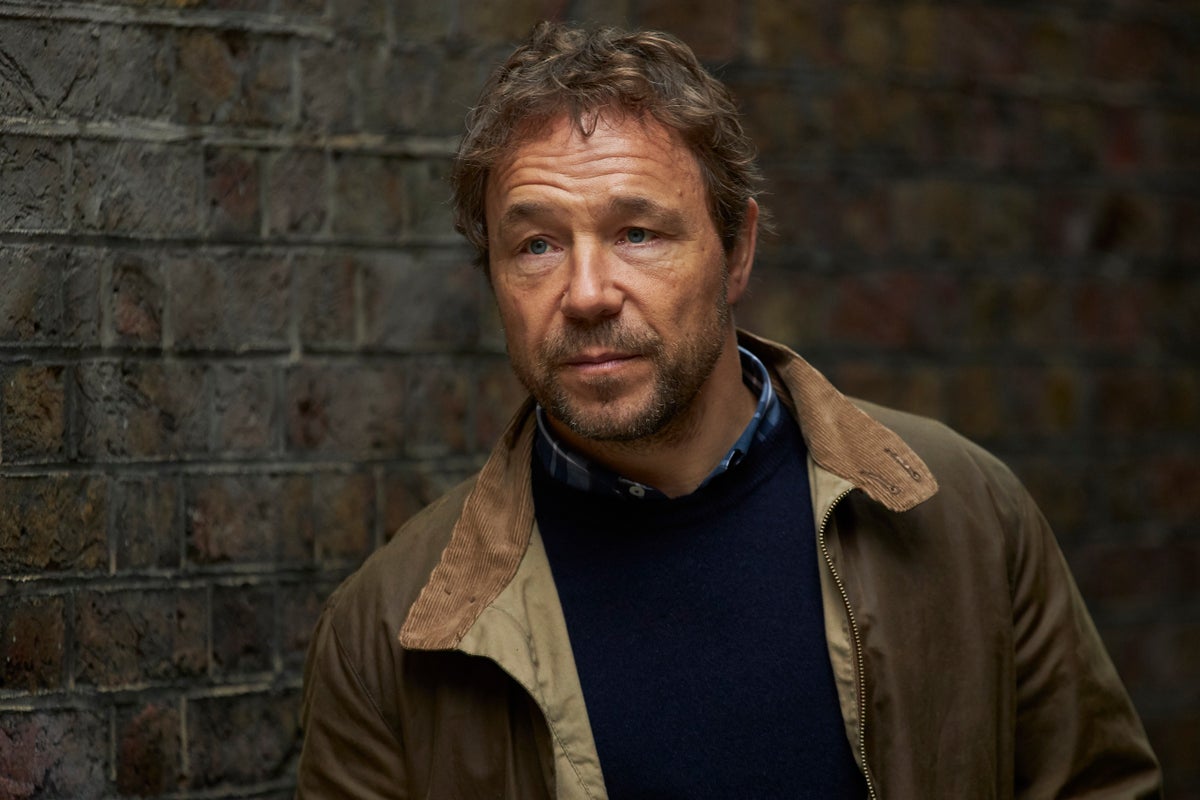
There is always a danger when television executives – who live, predominantly, in four-bedroom London townhouses, picking up oat milk flat whites before electric bicycling their way into Soho – decide to depict the lives of working-class northerners. That jeopardy is on full display in ITV’s five-part true crime thriller, The Walk-In, a look at the rise of the National Action terror group in the wake of the murder of MP Jo Cox. Thankfully, this gritty, disturbing drama manages to squeeze pathos out of one of the most troubling stories in recent British history.
Is there a better actor working in British television, right now, than Stephen Graham? After last year’s one-two punch of Time and Help (not to mention The North Water and Peaky Blinders), Graham returns to screens as Matthew Collins, a far-right activist turned antifascist campaigner and journalist. It is a role that suits Graham down to a tee: he has always had a stocky, pugilistic physique softened by kind, searching eyes. Here, he is totally convincing as a man who was once at the frontline of British racism, but now stalks around an office wearing reading glasses and pastel-coloured Oxford shirts. “We have to believe that people filled with hate can change,” he tells a lecture hall. “I changed.”
Graham takes top billing, but the emotional core of The Walk-In is the story of Robbie Mullen (This is England’s Andrew Ellis), a disaffected young man, who falls in with a group of neo-Nazis. These men are, I think it’s fair to say, baddies: a horrible blend of thuggery and pseudo-intellectualism, typified most strongly by Jack Renshaw (Game of Thrones’s Dean-Charles Chapman), a preppy polemicist railing in support of race war. “We must develop the killer instinct,” he tells a room full of National Action sympathisers in a Warrington pub. “Where Hitler went wrong is he showed mercy.” Robbie watches on, nursing his cola. They’re chilling words, but, for now, just words.
At times, The Walk-In can be a touch didactic. That’s natural with the subject matter, and the true story – about the foiled plot to murder Labour MP Rosie Cooper – doesn’t invite much nuance. But Ellis brings a brittle sensitivity to Robbie, showing the slippery slope of micro-antagonisms that lead him to that first National Action demonstration. “Welcome to the Islamic Republic of Bradford,” his electrician colleague tells him, when they are denied access to a Muslim family’s home because they are unmarried men. Robbie is vulnerable, impressionable, and his family are worried for him. “I don’t think it’s good for you, living on your own,” his sister, Natalie (Molly McGlynn), tells him. “You need to mix with people more.” Be careful what you wish for.
Though the story is Robbie’s (the title refers to “walk-ins”, defectors who offer to turn informant), the figure of Matthew Collins, and his colleagues at Hope Not Hate, act as a dramatic failsafe. Leanne Best plays Collins’s long-suffering wife, Alison, trying to offer their children normality while far-right groups target her husband. “Will you please come and fix this PlayStation before I strangle these kids?” she asks her brooding partner. The intrusion of this self-contained domestic drama suggests a lack of confidence that viewers would stick with the pint-swilling, the sieg-heiling and the relentless racial slurs of its ragtag group of terrorists. But the show feels more cerebral, more true to life, when unravelling those real events, rather than relying on the emotional crutch of family strain.
Former Conservative leader Iain Duncan Smith famously said – in an often lampooned quote – that you should “not underestimate the determination of a quiet man”. Robbie Mullen is a better example of this axiom than Duncan Smith himself. The Walk-In can be hard to watch, thanks to its unflinching portrait of British neo-Nazism, but there’s something deeply compelling about seeing an ordinary man getting sucked into, and pushed away from, these destructive ideologies.







